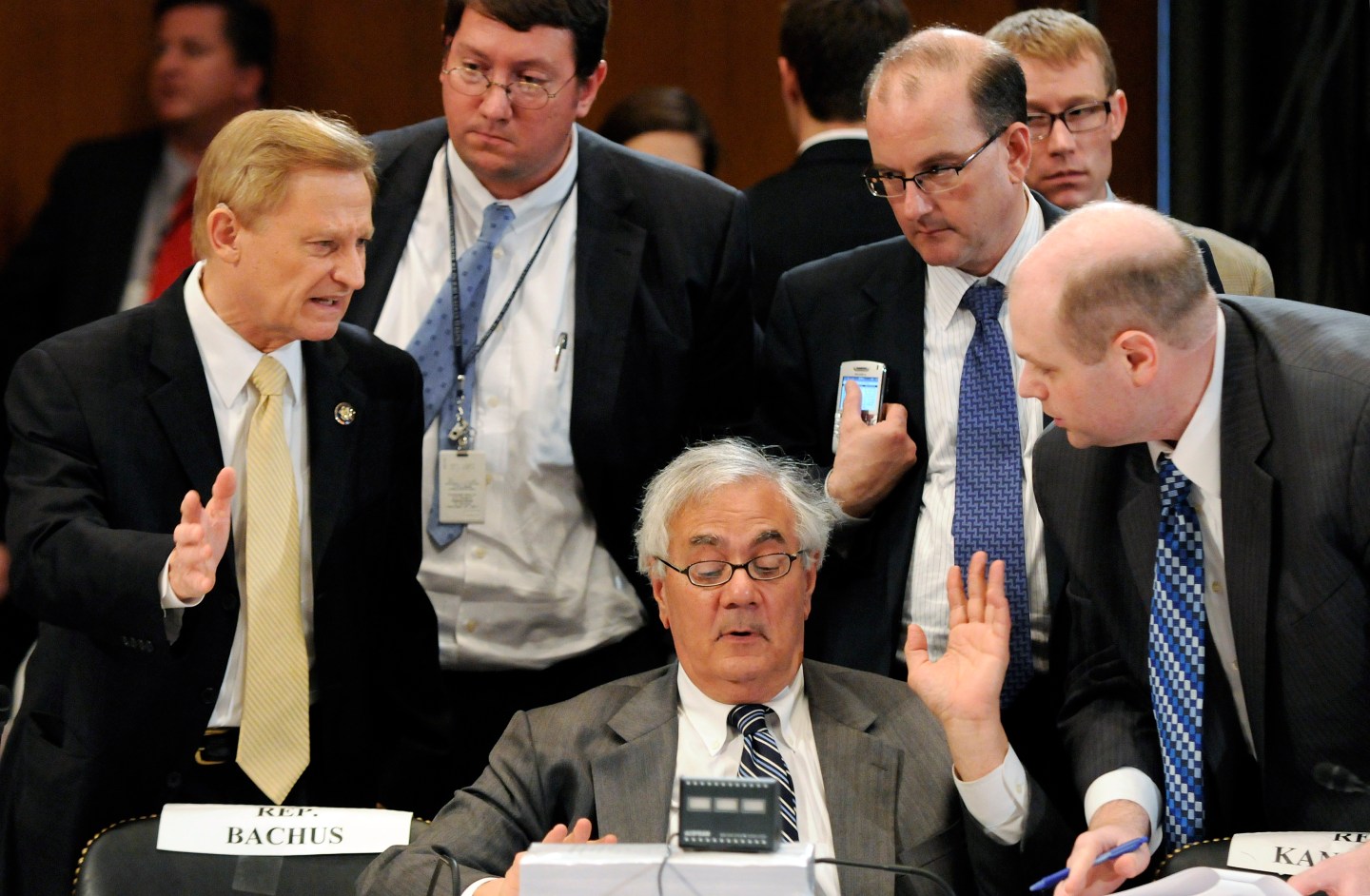Barney Frank has gone from being bankers’ enemy No. 1 to a well-compensated, trusted adviser in a little over two years.
On Wednesday, Frank, the co-author of the financial reform law Dodd-Frank that reshaped the financial industry after the financial crisis, was appointed to the board of directors of New York-based Signature Bank. Frank said that he was glad to be joining a bank that mostly caters to small businesses. “Signature Bank knows firsthand the importance small business plays in the health and vibrancy of our nation’s economy,” Frank said in a statement.
Indeed, Signature is not the type of bank that the Dodd-Frank bill was aimed at. It has a small investment bank that is mostly focused on wealth management. On it’s most recent report to the Federal Deposit Insurance Corp it listed no tradable assets or a tiny amount of derivatives.
But Signature is still a relatively big bank with nearly $29 billion in assets. It is not among the group of 31 big banks that have to pass the Fed’s main stress test. But Signature is still large enough to be in the group that the Fed mandates run their own stress testing each year to see how they would do in a financial downturn. The results of those tests are not made public. Like many other banks, Signature got money from the government following the financial crisis, but it was one of the first to repay the so-called TARP funds in early 2009.
Signature has not said how much Frank would be paid as a board member. On Wednesday, the bank, according to a filing, awarded Frank 1,913 shares of the bank’s stock, which at a recent $146, is worth nearly $280,000. But Frank was restricted from selling the shares until next March. According to the bank’s most recent proxy filing, the bank’s directors had an average compensation of around $375,000 paid in cash and stock last year.
